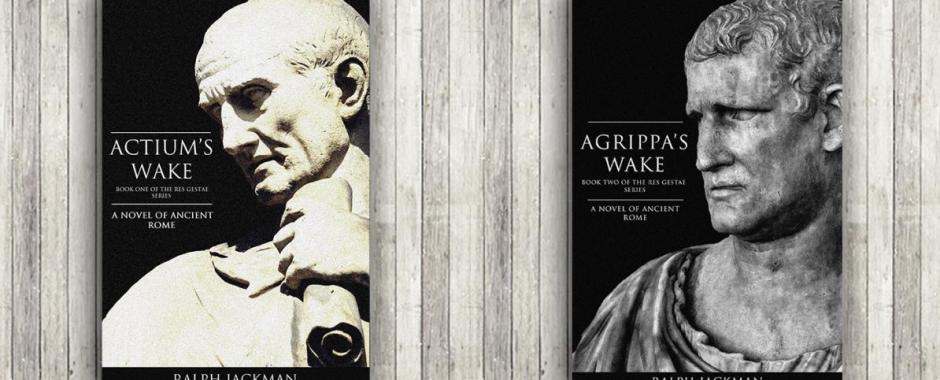
'An Extraordinary novel'
I've called the book extraordinary, and I mean that literally. As a student of Rome and the Romans I'm struck by their focus on success; even after catastrophes the Roman collective bounces back. They just don't admit to failure. Here, the protagonist cuts across the grain: he is a bungler who lets down anyone who relies on him: Agrippa, his wife Olivia, Whisper. For all that he isn't unsympathetic, since he lives at a time of transition -- brought out very well by Jackman -- and is simply out of his depth.
He has sufficient insight to see what the future holds, and in the compelling scene where he decides not to assassinate Octavian he realises that he cannot stand in the way of the future, much as dislikes the look of it.
In one respect, however, he forfeited my sympathy: gripping though the account of the treason trial is, Crispus was a hypocrite and a bounder to mount the prosecution (hypocrite, because he didn't after all want to save Octavian from a treasonous plot, not that there was one).
The most sympathetic figure was Agrippa; I can imagine that he was exactly as Jackman has portrayed him; decent, concerned for others, but like a solid lieutenant unready to question orders. The big set-piece scenes -- the trial, the triumph, the races -- are vividly realised.
Roland Mayer, Professor of Classics, King's College, London
